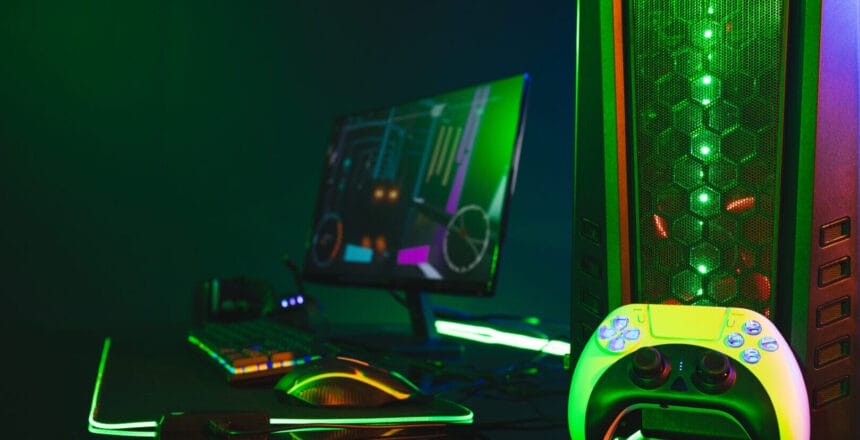Is your teenager or close relative interested in building their own gaming computer? The electrical needs of a powerful gaming computer correspond much more than you’d think to the actual performance, and more importantly, reliability of the computer. The computer can’t run without some sort of power supplier, and more specific and expensive parts may require even more power than a standard home desktop computer.
The power that your computer needs comes from a Power Supply Unit, or PSU. The PSU gives the electricity to the computer so that it can run. All computers have one of these, however a gaming computer requires a PSU that can withstand higher wattages because of not only the amount of components in a gaming computer, but also the fact that these parts are much more powerful than anything that a standard desktop PC has.
The center of the PC gaming industry is Steam, a hub and store for most games and almost all gamers. According to the June 2024 Steam PC hardware survey, the most popular graphics card is the NVIDIA Geforce RTX 3060, and the most popular CPU is the AMD Ryzen 7 7800X3D. These two parts combined come to a total electricity and/or power consumption of 290 watts. 290 watts of power is already not enough to run a computer of that caliber, especially when things like the motherboard and CPU cooler are not yet factored in. If you want to build a computer with that level of specification, the minimum wattage that your PSU should be is 550 watts.
Another thing that should be factored in when choosing a power supply is the brand that makes it. Seasonic, Corsair, ASUS, MSI, XPG, EVGA, and Thermaltake are all reputable and reliable makers of PSUs. The next and final factor when choosing a PSU is the efficiency rating. The efficiency ratings go in this order from worst to best: White, Bronze, Silver, Gold, Platinum, and Titanium. These ratings represent how efficient a PSU is at drawing power, which also determines how much money it will cost to run your system per year. The electrical cost to run the computer is not a fixed amount between one computer and another, as the amount of money it will cost relies on how powerful the components are. For example, if there is a 950W 80 Plus Titanium rated PSU paired with mid-range components, the electric bill will be less affected by the PC, whereas if this same PSU was paired with top-of-the-line components, it would cost much more because of how much harder the PSU needs to work in order to draw that power. The components to the computer also play a part as they draw more power depending on how powerful they are and how much power they need to use in order to make them run at their full potential.
Although gaming computers draw a lot of power, there are settings in lots of software to mitigate this issue. Many monitors and computer parts have software drivers that have options that can change energy consumption. If this setting is lowered from the default, then it will put less stress on these components, which saves power at the cost of some performance.
Gaming computers are another appliance in your home that can tax your electrical system. When purchasing high-end gaming components or a fully built gaming computer, be sure to protect your electrical system with proper surge protectors.

